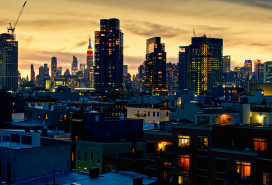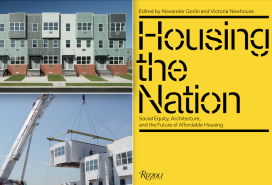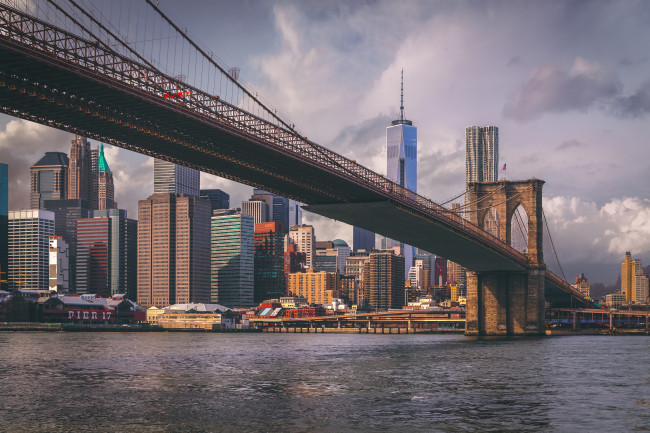NYC says it will honor the Paris climate accord—here's what we need to do to make that happen

S. Jhoanna Robledo
It's official: Donald Trump announced last week that the U.S. will withdraw from the Paris climate accord, claiming that the 195-nation agreement would imperil the economy. Under the accord, countries pledge to combat rising temperatures around the globe by cutting their greenhouse gas emissions and helping developing nations adopt greener energy sources, per this NPR explainer.
The president's decision has drawn criticism from both the left and the right (with some kudos from the right). But before Trump even made his announcement, Mayor Bill de Blasio said that NYC will continue to adhere to the agreement, regardless of what happens on a national level, Gothamist writes.
City Hall shines green tonight because New York City will honor the goals of the #ParisAgreement. pic.twitter.com/BV0IIZYPpA
— Bill de Blasio (@NYCMayor) June 2, 2017
So what is the city already doing to tackle one of the Paris agreement's major requirements: reducing greenhouse gas emissions? The Mayor's Office of Sustainability has committed to cutting these emissions—which fuel global warming—to 80 percent less than 2005 levels by 2050.
This requires the cooperation of thousands of buildings, which account for 75 percent of emissions in NYC. The Office of Sustainability notes that it has partnered with a number of businesses, universities, and hotels that have promised to improve their energy efficiency, 10 of which have already reduced their own emissions by 30 percent. (FIT, for instance, installed more efficient lighting, windows, and appliances, and built a green roof on one of its properties.)
Other city agencies are getting in on the green effort, too. Patch writes that new, energy-efficient lighting installed across 18 NYCHA complexes will save the city $1.6 million per year and reduce the housing authority's carbon dioxide emissions by 6,563 tons.
Beyond that, though, Streetsblog points out that promoting green transportation by devoting more street space to cyclists and pedestrians is a must if the city is to reach that 80 percent reduction goal. To that we'd add extensive repairs and revitalization of our seriously ailing public transit system, so that commuters are less compelled to rely on their own cars to get to work.
On other fronts, too, New York lags behind. Another aspect of the Mayor's sustainability plan is "Zero Waste," a commitment to send zero waste to landfills by 2030. It's a lofty goal, though, especially since two-thirds of the 44 million pounds of garbage that NYC produces daily is sent to landfills now, according to Crain's.
And when it comes to recycling, although the city's curbside pick-up program is the biggest in the U.S., we still have a long way to go: Only 16 percent of residents and 19 percent of businesses sort their garbage for recycling; the Crain's story points out that a lack of space for separate trash bins in small apartments may be one of the reasons many New Yorkers fail to recycle. Former mayor Michael Bloomberg had floated the idea of a "trash tax" to address this issue; the city is now aiming to create a one-bag recycling solution by 2020.
There's lots of work to do on both the individual and systemic levels if the city is to meet the Paris accord's goals. But on the bright side, NYC has plenty of company in the mission to get greener: CNN reports that mayors and governors throughout the country have joined NYC in vowing to hold to the climate agreement.






























